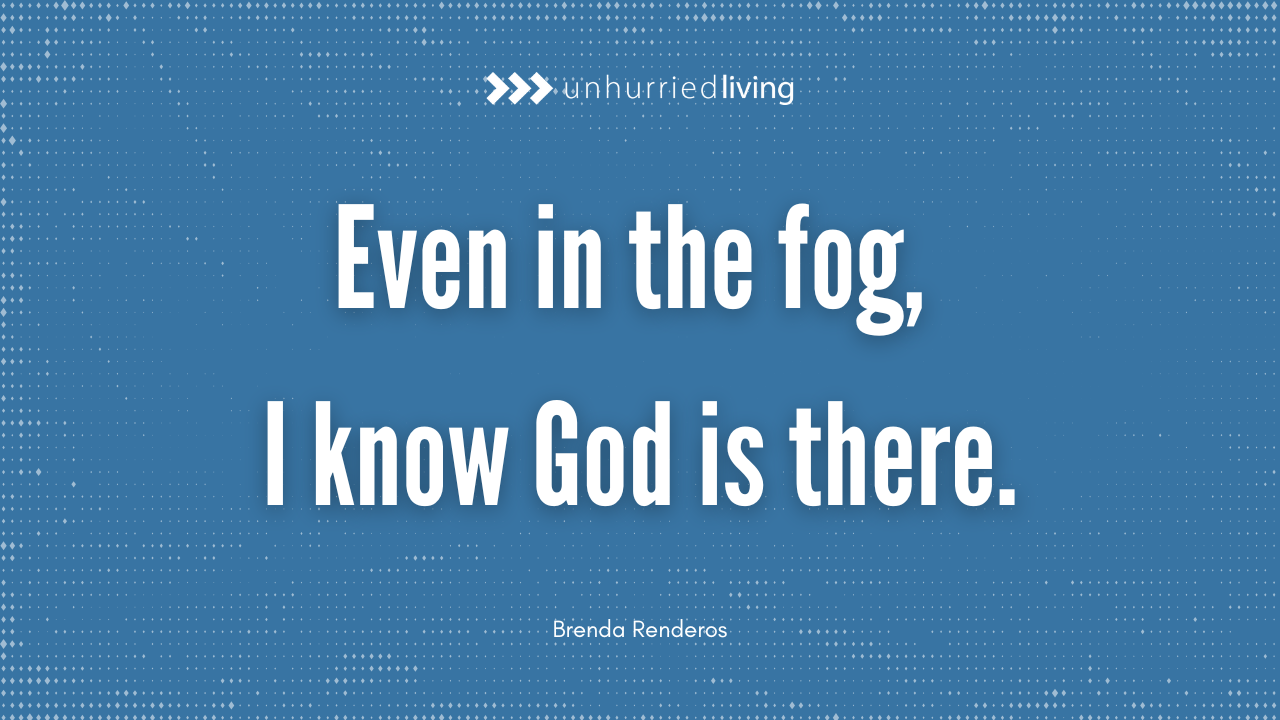A Personal Journey Through Doubt, Trust, and Mystery
Jul 30, 2025
Guest Blog by Brenda Renderos
If God is loving, then why _______?
Fill in the blank. For me, it’s come in many forms: Why does God allow injustice? Why do children suffer? Why does hate so often seem to win? Why didn’t God save my loved one?
In my younger years, I thought I had the answers. I had learned well what I was taught—the idea of free will, how God gave us the choice to choose our paths, and that the consequences of those choices could sometimes lead to pain. I also was taught that because of Adam and Eve’s disobedience in the Garden of Eden, we live in a fallen world, and everything bad that happens is part of that brokenness. Those answers felt right, enough to carry me through the confusion and to offer some solace to others who were questioning with me. When someone would ask, I could reply with certainty.
But as time passed, I began to sense something shifting inside me. Over the years, as I sat with others in their pain and witnessed the depths of their struggles—families being torn apart, children suffering, hate running rampant in the world, the sting of death claiming loved ones—I found myself sitting with that same question: Why?
I could feel the weight of the question in my own heart. The deepest burden came from walking with others who were asking the same question and barely holding on. Their hearts echoed mine: Why? It was no longer a distant, abstract question—it had become personal. And no matter how much I tried to offer an answer, it never felt like enough. I had been taught to always be ready to give an answer. I had been trained to rightly divide the word of truth, to show myself approved, and to be prepared. But more often than not I felt unprepared.
Recently, I went on a retreat, thinking I could gain some clarity there. I found myself on a bench overlooking the ocean, the horizon hidden in a thick fog that rolled in every morning and stayed strong throughout the day. The fog wrapped the entire ocean in mystery. I spent days sitting there, lost in the fog, my mind tangled in the same question: Why?
On the last morning of the retreat, I again sat on that bench, staring into the fog to try and glimpse the ocean. It was as if the sea had vanished, swallowed whole by the mist. I felt a wave of frustration rise in me. But then, amid the quiet, something shifted inside of me.
I heard an inner voice, clear and simple, that spoke five words:
“But you know it’s there.”
I stared at the fog, uncertain at first. The ocean was hidden from sight by the thick mist, but somehow I knew it was there. I had seen it before—felt its waves, tasted the salt on my lips, heard the crash of waves against the cliffs. The fog simply obscured it, but it was still there. I didn’t need to see it at that moment because I had experienced it.
And so that voice spoke again:
“But you know it’s there.”
Those words didn’t didn’t instantly chase away the fog or my questions the fog or to my questions. But they steadied me. They called me to trust what I had experienced of the ocean, even when I couldn’t see it. It was a statement of truth: I know the ocean is there. It was a challenge to not let the fog—the mystery and the confusion—distract me from what I know to be true. And it was an invitation to trust, to surrender to the fact that the fog was beyond my control but my response to it was not.
This is how I now approach the why question in my life. I don’t have the answers to every hurt, every injustice, or the suffering of the innocent. I don’t know why some prayers seem to go unanswered and why others seem to be met with silence. I can’t always explain the fog—the confusion and the weight of things we don’t understand.
But just as I know the ocean is there, even when I can’t see it, I know God is present.
In the fog I find steady ground. I know God is with me, even in the things I can’t explain. And though the fog of questions may feel suffocating at times, I hold on to the truth of what I’ve already experienced of him. The challenge is to trust what I know, even when I can’t see the answers.
God invites us to surrender, to walk with him in the mystery, and to remember that even in the fog, we are not alone.
The answers may not always come, and that’s okay. In the quiet, in the fog, I can simply say, I don’t know. But I know God is there. And sometimes that’s enough.
For Reflection:
- How do you respond to the mystery and confusion of life when you can’t see or understand God’s plan?
- What have you experienced about God’s presence that helps you trust him in times of uncertainty?
- How can you practice surrendering to God’s presence and walking with him through the unknowns of life?


